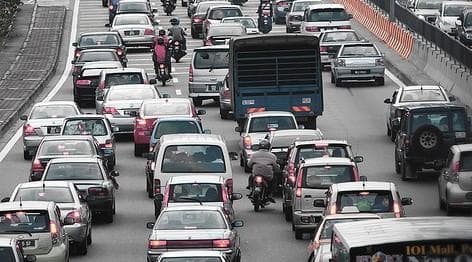Advertisement
Traffic Fumes Linked To Higher Rates of Autism, Premature Births
Resume
Tiny carbon particles commonly found in car and truck exhaust have long been researched for their role in heart disease, cancer, and respiratory illnesses. Now an increasing number of studies are linking vehicle exhaust to other serious health problems.
Studies in New York, Beijing, Boston, and Krakow, Poland show that children in high traffic areas do worse on intelligence tests and have more emotional problems than children who breathe cleaner air.
In a California study, children born to mothers living within 1,000 feet of a major road were twice as likely to have autism.
A long-term Columbia University study found that the air pregnant women breathed could leave a bio-chemical mark on their babies' DNA, and babies with the highest pre-natal exposure have higher rates of physical and emotional problems as they grow up.
But Wall Street Journal science correspondent Robert Lee Hotz says that in many cases, the traffic congestion could be addressed easily, and decrease health problems.
For instance, in New Jersey, premature births to women living near highway toll passes decreased almost 11 percent after the introduction of the E-Z Pass system, which reduced congestion and fumes.
Hotz also says that New York City's Times Square is an example of how small changes can impact pollution levels.
"By simply changing the pattern of streets, reducing the traffic so there were fewer traffic jams, the general air pollution levels there dropped 63 percent," he told Here & Now's Robin Young.
- Wall Street Journal: The Hidden Toll of Traffic Jams
- Texas Transportation Institute: Congested Corridors Report
- Texas Transportation Institute: Researchers ID Most Congested Corridors
Guest:
- Robert Lee Hotz, science correspondent for the Wall Street Journal
This segment aired on December 8, 2011.